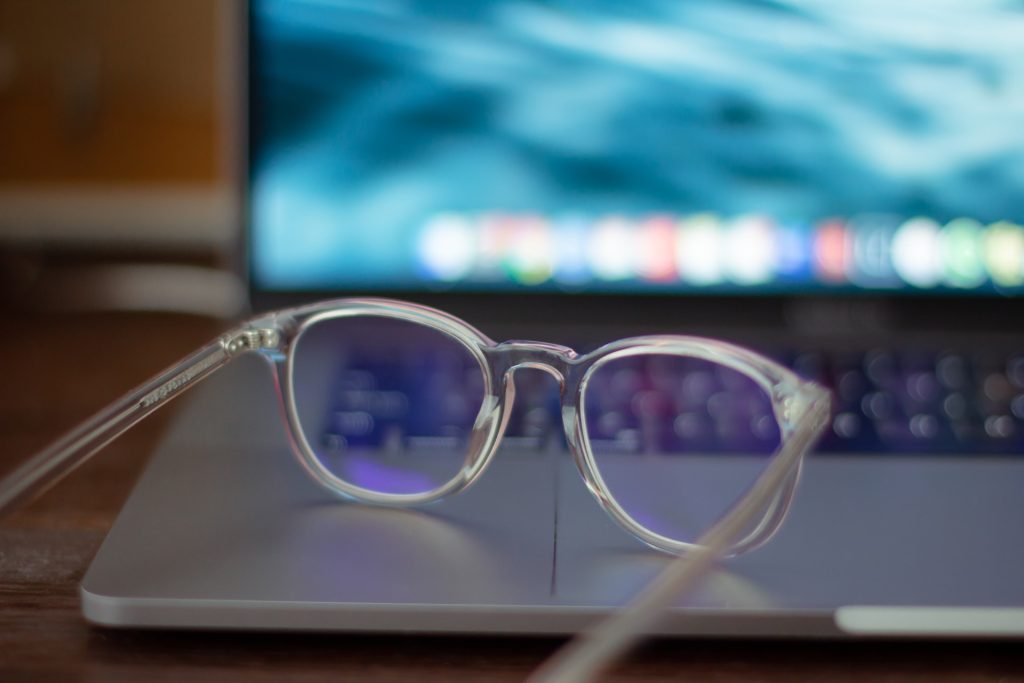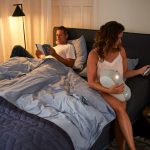Table of Contents
Staring at screens at night? That glow is wrecking your sleep and aging you faster. Blue light blocks melatonin, disrupting deep rest and recovery. Biohackers swear by blue light glasses to fix it—improving sleep, energy, and overall health. Here’s how they work.
The Blue Light Problem No One Talks About

I always thought my sleep was fine—until I noticed my friends struggling with theirs. One of them, a night owl by habit, complained about feeling exhausted all day but unable to fall asleep at night.
Another swore his skin was aging faster, with dark circles and fine lines creeping in. They blamed stress, but their sleep improved almost instantly when they started using blue light-blocking glasses.
Blue light tricks the brain into staying alert by suppressing melatonin, the hormone responsible for sleep. My friends’ experiences made me more conscious of my habits, and while I hadn’t suffered as much, I could tell my late-night screen time was affecting me.
I started wearing blue light glasses in the evening—just like they did—and within a few nights, I noticed a difference. Falling asleep felt easier, and waking up wasn’t a battle. Beyond just feeling tired, poor sleep accelerates aging by increasing cortisol levels and reducing collagen production.
That’s why people who struggle with sleep often show signs of premature aging—dull skin, fine lines, and sluggish recovery. My friends had unknowingly been making themselves look older, but once they adjusted their screen habits, their energy improved, and even their skin looked healthier.
Why Poor Sleep Makes You Look Older
Sleep is the body’s natural repair process, and when it’s disrupted, the signs show up on the skin, metabolism, and overall health. During deep sleep, the body produces growth hormones essential for cell regeneration, collagen production, and muscle repair.
Without enough quality rest, these processes slow down, leading to dull skin, fine lines, and weaker muscle recovery. Lack of sleep also raises cortisol levels, the stress hormone that breaks down collagen and accelerates aging.
Chronic sleep deprivation increases inflammation, which can make skin appear puffy, tired, and less elastic over time. Research has linked poor sleep to increased oxidative stress, a major contributor to premature aging and age-related diseases.
Beyond appearance, poor sleep impacts circulation and hydration, leading to dark circles, dry skin, and a lack of vibrancy. Blood flow to the skin decreases when sleep is compromised, reducing its ability to deliver oxygen and nutrients.
The Science Behind Why Blue Light Glasses Work

Blue light glasses block or filter out high-energy blue wavelengths emitted by screens, LED lighting, and other artificial sources. Blue light has a short wavelength and high intensity, which signals the brain to stay alert by suppressing melatonin, the hormone responsible for sleep regulation.
By wearing blue light glasses, the eyes receive less stimulating light in the evening, helping the body maintain its natural sleep cycle. Scientific studies confirm that excessive blue light exposure in the evening delays melatonin production, making it harder to fall asleep and reducing sleep quality.
This can lead to shorter deep sleep phases, increased nighttime wake-ups, and morning grogginess. Blue light glasses counteract this effect by reducing the amount of blue light reaching the retina, allowing melatonin levels to rise naturally and supporting more restful sleep.
Beyond sleep, blue light also contributes to digital eye strain, causing headaches, dry eyes, and visual fatigue. Blue light glasses help by reducing glare and limiting overexposure to these wavelengths, making screen time more comfortable and less taxing on the eyes.
Why Night Mode and Screen Dimming Aren’t Enough
One of my friends tried fixing his sleep by switching on night mode on his phone, convinced that the warmer tones would reduce blue light exposure. At first, he thought it helped—his screen looked less harsh, and his eyes felt less strained. But the real problem? He was still struggling to fall asleep and waking up feeling just as exhausted.
Night mode only reduces some blue light but doesn’t block the wavelengths that disrupt melatonin production. Even with a dimmed screen, your brain perceives artificial light as a daytime signal, delaying the natural sleep cycle.
This is because blue light exposure at night suppresses melatonin far more than other wavelengths of light. Studies show that even small amounts of blue light from screens or LED bulbs can shift the body’s internal clock, making it harder to fall into deep, restorative sleep.
While dimming screens can reduce eye strain, they do nothing to prevent the hormonal disruption that keeps the brain alert.
The Unexpected Bonus: More Energy and Focus

After switching to blue-light glasses, mornings felt easier, focus came naturally, and the sluggish, drained feeling that used to linger was gone. Instead of dragging through the first few hours of the day, we all had a noticeable boost in energy and mental clarity.
Better sleep supports hormonal balance and recovery, naturally reducing the need for stimulants like caffeine. Deeper rest means more stable energy levels, fewer mid-day crashes, and increased resilience to stress. Instead of masking fatigue with temporary fixes, the body produces its consistent, natural energy supply.
To take things a step further, we also tried Mick’s Naturals nicotine lozenges for an extra cognitive boost. A small, controlled dose helped sharpen focus and maintain steady energy levels without the jitters or crashes of coffee. We weren’t relying on short-term energy spikes anymore—we had a system that worked.
Are You Making These Common Sleep Mistakes?
Many people struggle with sleep without realizing their habits might be the problem. Even small mistakes can disrupt melatonin production, increase nighttime wake-ups, and leave you exhausted no matter how long you stay in bed.
One of the biggest mistakes is inconsistent sleep timing. Going to bed at different hours each night confuses the body’s internal clock, making it harder to fall into deep, restorative sleep. Another common issue is, as I mentioned above, exposure to artificial light before bed. The solution is quite handy. You should explore it.
Late-night eating, excessive caffeine, and even room temperature can also keep your body from fully recharging.
The good news is that these mistakes are easy to fix. Sticking to a set bedtime, reducing screen exposure, and optimizing your sleep environment can make a huge difference.
One Small Change for Big Sleep and Energy Gains
If you’re struggling with sleep and low energy, blue light glasses might be the easiest, most effective fix. You don’t need expensive treatments or sleep meds—you just need to stop confusing your brain at night. Wear blue light glasses for a week and see what happens.

Hi! I’m Dave, a longtime biohacker focused on natural ways to improve health and performance. My work revolves around analyzing the science behind cognitive enhancers, nutrition, and longevity strategies. I’m particularly interested in natural nicotine products and their effects on focus and energy. Everything I share is based on research and real-world application, ensuring practical, reliable insights. Please note, none of the information shared here is medical advice.




